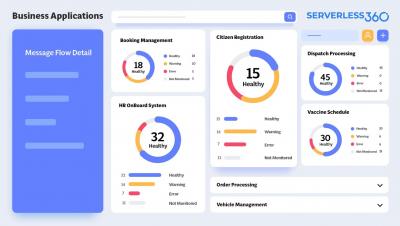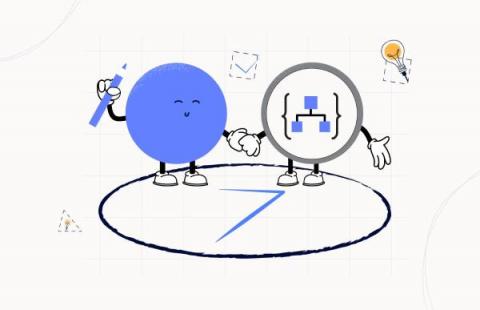Operations | Monitoring | ITSM | DevOps | Cloud
Serverless
The latest News and Information on Serverless Monitoring, Management, Development and related cloud technologies.
Azure Documenter - Autogenerate documentation to turn live Azure Subscriptions data into insights
Introducing Serverless360
Monitor your AWS Lambda functions' ephemeral storage usage
AWS Lambda is AWS’s solution for highly portable, serverless computing. With Lambda functions, you can deploy and run business logic code without managing the underlying servers. Today, AWS announced that Lambda customers can now provision up to 10 GB of ephemeral storage for each of their functions, making them well-suited for new, data-intensive workloads—including machine learning inference, large media file processing, financial analysis, and more.
Welcome to 10GB of tmp storage with Lambda
Every Lambda function comes with 512MB of ephemeral storage in the shape of a /tmp directory. This storage space can be reused across multiple invocations for the same instance of a Lambda function. Each instance of a function has its own /tmp directory and data is not shared amongst different instances of a function.
What Are the Differences Between Elastic Beanstalk, EKS, ECS, EC2, Lambda, and Fargate?
Logic App Best practices, Tips and Tricks: #7 Learn from failures
Logic App Best practices, Tips and Tricks: #6 Error handling... configure run after settings
Decoding the robust Azure architectures with fail-proof monitoring
Unified Serverless Observability With OpenTelemetry and StackState v4.6
StackState has always believed in the importance of open source and open standards, and we’ve demonstrated our commitment through ongoing support of open technologies. From the beginning, StackState supported StatsD and OpenMetrics. Even our agent is open source, designed to help organizations easily onboard our platform and to give them an extensible open way to observe their services. StackState is now proud to announce our next big open source step.











